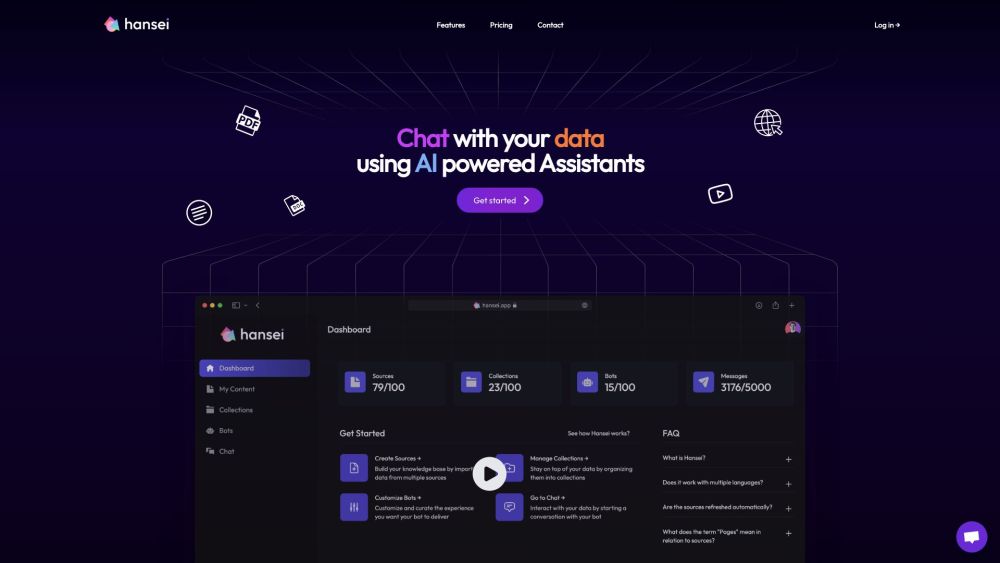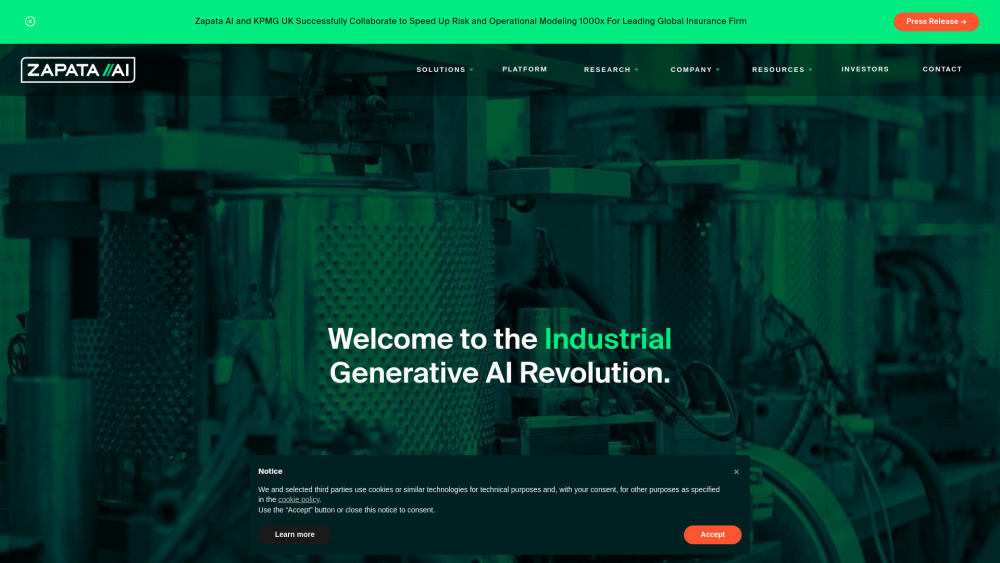Cyvl.ai Revolutionizes Transportation Infrastructure with Data-Driven Solutions
Most people like

Introducing PseudoEditor, a free online editor designed to simplify the process of writing and editing pseudocode. With its intuitive interface and powerful features, PseudoEditor makes it easy for users of all skill levels to create clear and organized pseudocode efficiently.

Discover the power of our AI tool designed specifically for converting Twitter Spaces into text. Easily transcribe conversations, lectures, and discussions from Twitter Spaces, capturing every insightful moment effortlessly. With our advanced technology, you can enhance accessibility, make notes, or repurpose content for blogs and articles. Join the growing community leveraging AI to streamline their Twitter Spaces experiences!

Hansei is an innovative AI platform designed for in-depth conversational data analysis, empowering businesses to unlock insights from their interactions.

In today's fast-paced business landscape, the integration of Industrial Generative AI is revolutionizing enterprise solutions. By leveraging advanced algorithms and machine learning, organizations can enhance productivity, drive innovation, and streamline operations. This transformative technology empowers businesses to create tailored solutions that meet their specific needs, enabling smarter decision-making and fostering growth in competitive markets. Embrace the future with Industrial Generative AI and discover how it can redefine your enterprise strategy.
Find AI tools in YBX

